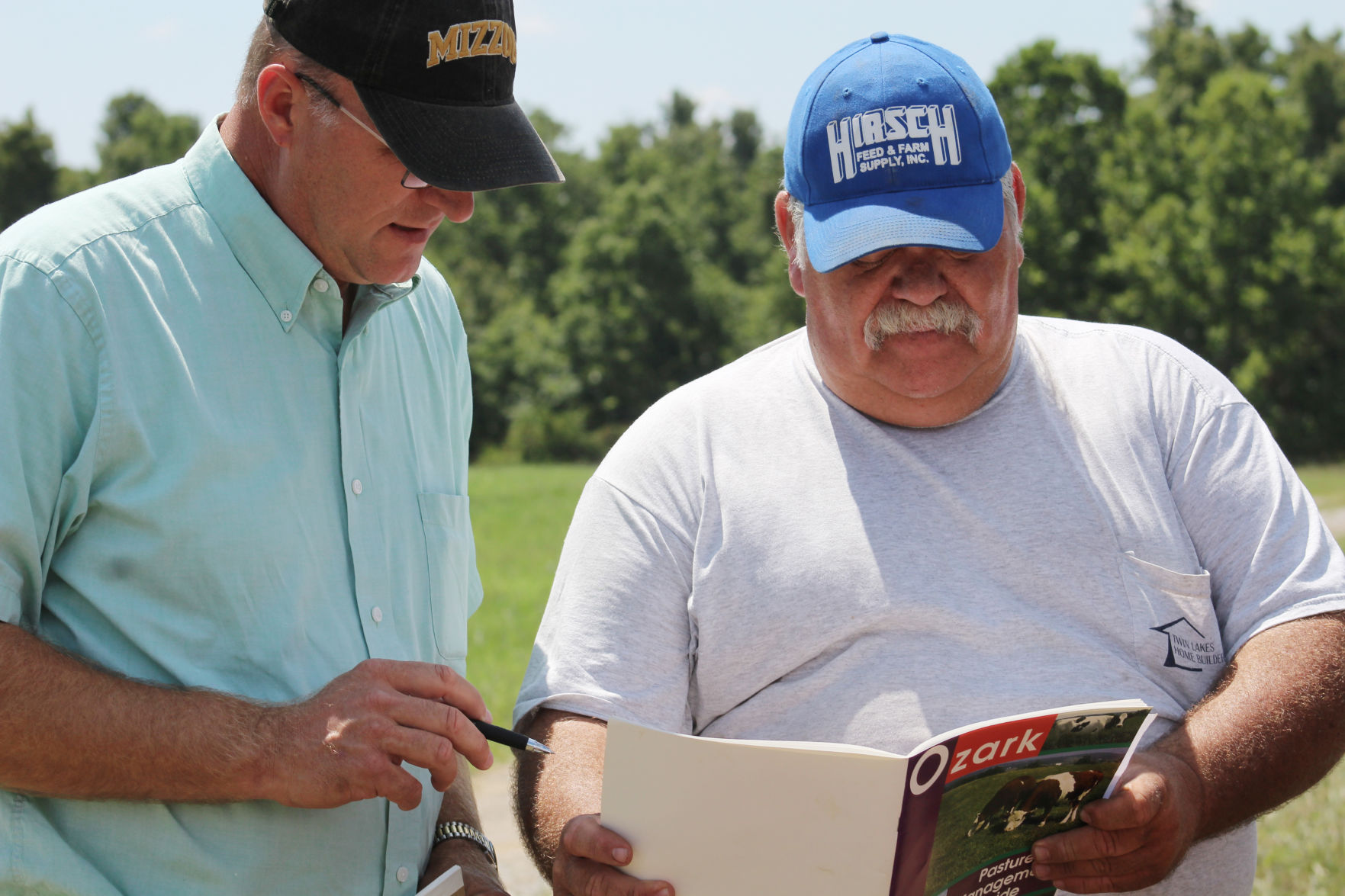University of Missouri Extension will hold an Aug. 30 tour of an Ozark County farm where a producer is turning to big bluestem grass for his cattle operation.
J.D. McKee will tell the story of his switch from Bermuda grass to warm-season big bluestem grass. McKee boosted hay production, improved quality and reduced input costs, says University of Missouri Extension agronomist Tim Schnakenberg.
McKee became an ambassador for warm-season grasses as growing seasons have become hotter and drier. Droughtlike conditions in southwestern Missouri have livestock producers scrambling for hay supplies.
“The drought has taken a major toll on beef and dairy farms in the area,” said Sarah Kenyon, MU Extension agronomy specialist. “Using warm-season grasses is one strategy to manage through drought years. Producers who use these crops tend to do better during a drought.”
McKee converted 13 acres into native big bluestem in 2016. He applied lime and fertilizer based on soil tests and planted 18 to 20 pounds of seed per acre in early June of that year. Other than weed control, he left the acres untouched to let the root system establish. He converted another 21 acres in 2017. In the future, he hopes to drill in April to get ahead of crabgrass.
In May 2017 he fertilized the bluestem and Bermuda fields again based on soil test results. He cut and baled the hay from both fields in the third week of June.
He says his investment paid off, and he encourages other landowners to consider a switch to native grasses that adapt to Missouri summers. The Missouri Department of Conservation and USDA Natural Resources Conservation Service offer cost-share incentives for producers who change to native grasses.
Fields of bluestem grow waist-high even on Schnakenberg, who is 6-foot-4. Bluestem also reseeds itself. McKee says calves fed bluestem hay weighed 50 pounds more than calves fed on another part of his cow-calf operation. He hopes to put 40 percent of his farm into warm-season grasses.
Fertilizer cost was $80.60 per acre for the big bluestem field and $92.78 per acre for the Bermuda grass.
Bluestem withstood drought better than many grasses in 2018. However, Schnakenberg says, tests this year did not compare as well as in 2017, when growing conditions were more favorable and McKee harvested two weeks earlier. McKee got a second cutting off his big bluestem fields this year and may get yet a third, despite lack of rainfall. He does not graze bluestem fields.
This year, McKee harvested 3.2 dry tons per acre on July 1 cuttings. In 2017, he produced six 1,250-pound bales per acre. With 15 percent moisture, that would be 6,375 pounds of dry hay. The 2018 hay tested 7.5 percent crude protein, compared to 8.7 percent in Bermuda. Total digestible nutrients also ranked lower—49.3 percent vs. 57 percent in Bermuda.
In 2017 it compared well not just in quantity but quality too. The big bluestem hay tested high in crude protein—15.19 percent, compared to 9.88 percent in the Bermuda bales. USDA gives grass hay its top ranking—premium—when crude protein tests more than 13 percent.
McKee drills bluestem seed with a grain drill that has a larger throat on flutes. It also has stirrers in the seed box to prevent bridging of the lighter-weight native seed. For more information on drill needs for native seeds, download the USDA technical note “Grain Drills and Planters” at bit.ly/2BBflmz.
McKee is chair of the Ozark County Soil and Water Conservation District. He led the way for the district to purchase one of the special drills. Farmers can rent the drills from select SWCDs and Missouri Department of Conservation offices statewide.
The tour is 4:30 p.m. to 7:30 p.m. Aug. 30 at the McKee Farm. Go from West Plains on Highway K then turn right on Highway KK. McKee Farm will be on the right 9 miles down KK.
On hand for the discussion will be Kenyon, Schnakenberg and MU Extension livestock specialist Randy Wiedmeier, as well as representatives from area SWCDs, the NRCS and the Missouri Department of Conservation.
Sandwiches and refreshments will be provided. To ensure enough food is available, please RSVP to 417-256-2391. University of Missouri and the NRCS Grassland Project sponsor the event.
For more information, contact MU Extension in Howell County at 417-256-2391.



